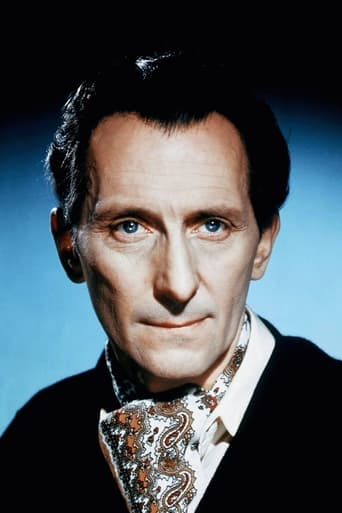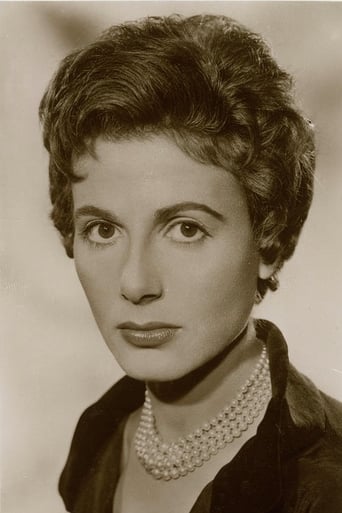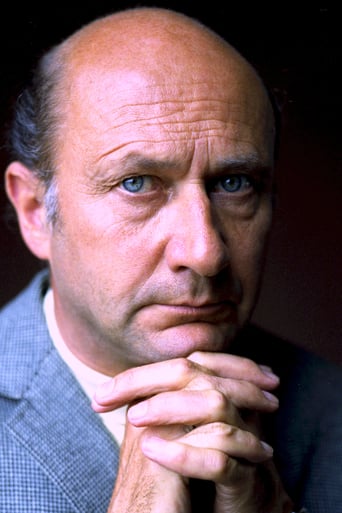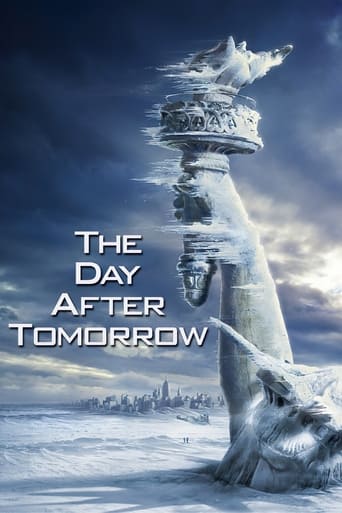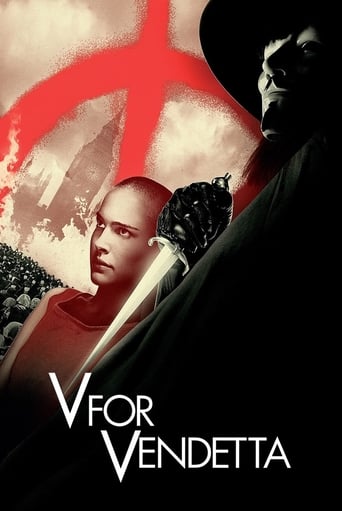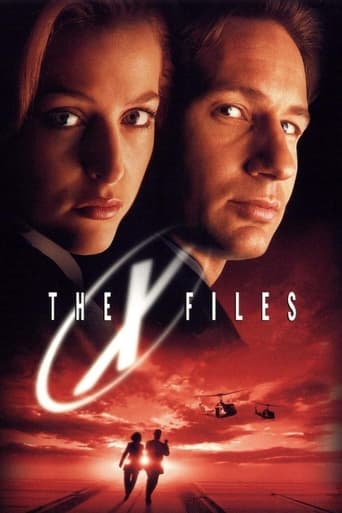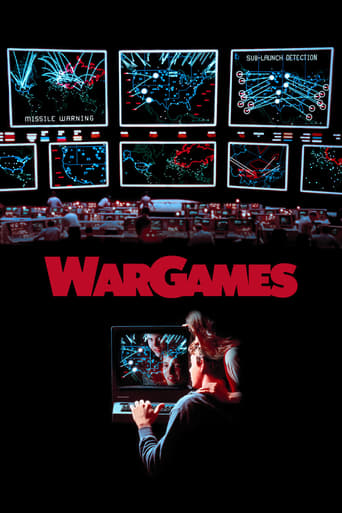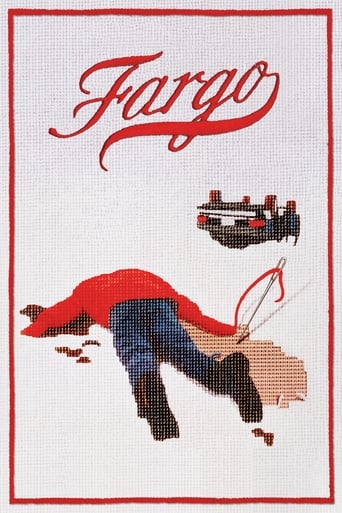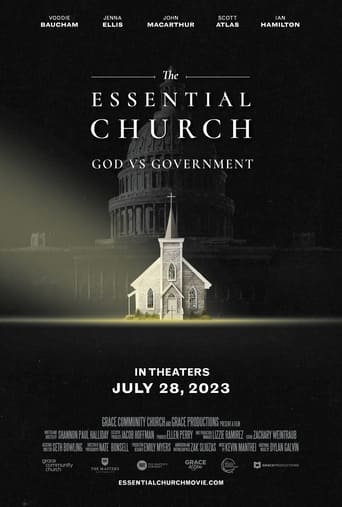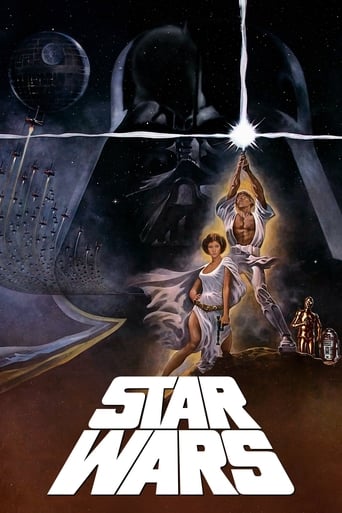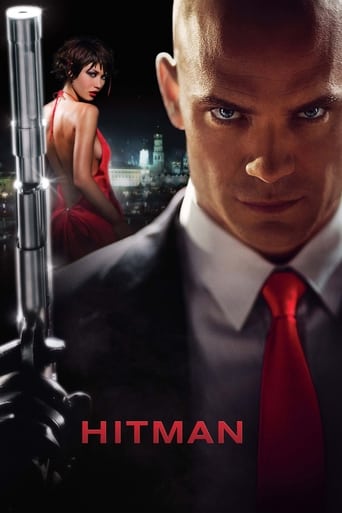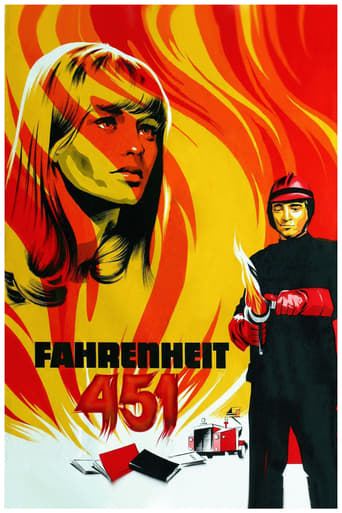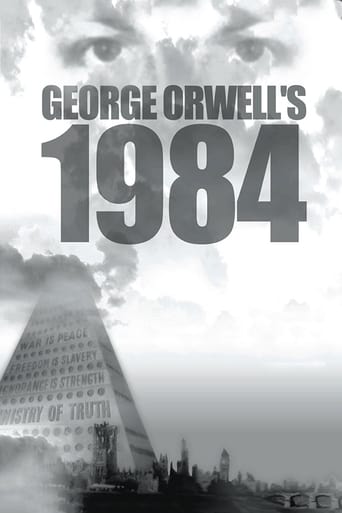
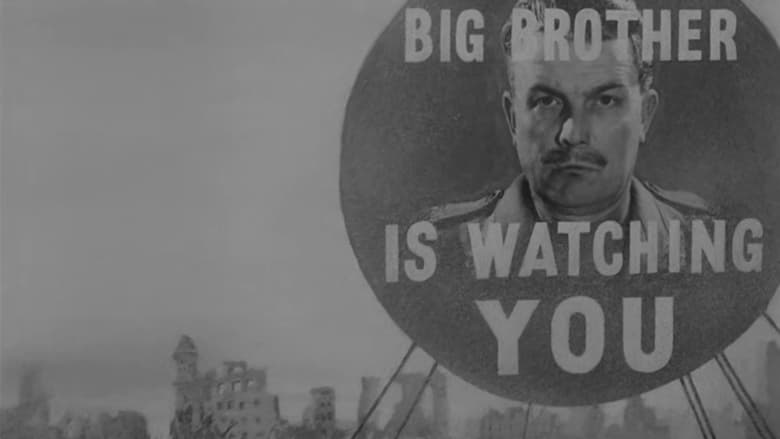
Nineteen Eighty-Four (1954)
A man who works for 'The Party' (an all powerful empire led by a man known only as 'Big Brother') begins to have thoughts of rebellion and love for a fellow member. Together they look to help bring down the party.
Watch Trailer
Cast


Similar titles
Reviews
It's funny watching the elements come together in this complicated scam. On one hand, the set-up isn't quite as complex as it seems, but there's an easy sense of fun in every exchange.
The film never slows down or bores, plunging from one harrowing sequence to the next.
This is a small, humorous movie in some ways, but it has a huge heart. What a nice experience.
It's the kind of movie you'll want to see a second time with someone who hasn't seen it yet, to remember what it was like to watch it for the first time.
The Dec 12 1954 live BBC telecast of Orwell's "Nineteen Eighty-Four" changed the career for star Peter Cushing forever after. His depiction of Winston Smith brought him to the attention of Hammer Films, who spent two years trying to sign him to a film, while a prolific string of teleplays kept him busier than ever. He deservedly won the Guild of Television Award for Best Actor for his performance here (the British equivalent of the American Emmy), yet was passed over for the feature version for Edmond O'Brien (only Donald Pleasence was retained from the BBC version, in a different part). In a repressed future society where 'War is Peace,' 'Freedom is Weakness,' and 'Ignorance is Strength,' thoughts and feelings are outlawed by the totalitarian government. Daring to love Julia Dixon (Yvonne Mitchell), Smith knows that there is no escape for them, only that 'some kinds of failure are better than others' (forbidden fruit is the best of all). Some critics rightly complained that Yvonne Mitchell's Julia lacked 'warmth,' but there was nothing but praise for Andre Morell's chilling O'Brien (replaced in the movie by Michael Redgrave), overseeing final punishment, using their own fears against them to completely wear down all defenses (no trace of humanity). As grueling as it is to watch now, one cannot imagine how shocking it must have been for viewers 60 years ago.
1984 is Orwell's legendary cerebral work . It's a novel that is bleak , downbeat and philosophical . It seems something of a pity however that much of his other work is overlooked such as his essays . Notes On Nationalism for example is a scathing attack on those people who are " anti-war " but whose bitter condemnation of conflict is only heard when it's waged by the democracies of Britain and America . It was written in the spring of 1945 so fundamentally it's far more prophetic than 1984 but 1984 is considered Orwell's masterwork Scriptwriter Nigel Kneale is - Like much of Orwell's work - somewhat forgotten today . He was once a household name in Britain due to both this adaptation of 1984 and the Quatermass serials . Regretfully it's forgotten how controversial the teleplay was when it was broadcast away back in December 1954 , so controversial that the houses of parliament debated television standards after the BBC was deluged with complaints . Perhaps this collective amnesia works in its favour when viewed today ?You have to be slightly forgiving when viewing 1984 . It may seem talky and static compared to even 1970 British television but if you compare it the same production team's THE QUATERMASS EXPERIMENT the year before which had the same production values as a school play you'll see how far things have come in such a short space of time . It's also noticeable how much Rudolph Cartier has been influenced by German Expressionist Cinema . We see nods to it here and see it even more explicitly in QUATERMASS 2 Kneale's script does contain a slight hiccup at the beginning when we're told of atomic wars and shown a vision of a devastated London . It's difficult to believe a nation that has survived such a catastrophe and still have the technology of telescreens but this is soon forgotten and we get on with the story proper . Kneale has a written a great adaptation on a novel that is probably impossible to film . Much of the novel's mechanics has Winston Smith thinking to himself and the subtext involves the idea that both personnel Utopia and societal Utopia are mere delusions that should never be sought . All the bits you remember from the novel are here and they're easily understood . Compare this to the 1984 movie by Michael Radford where the story is confused and you'll see how well Kneale has done in doing the impossible The cast are good and there's little in the way of over emphatic performances though they are sometimes noticeable when they do appear but they're nowhere as bad as some that plagued television in the 1950s . There is the slight problem of middle class extras giving it " Cor blimey guv " working accents but having heard David Tennant's mockney accent in DOCTOR WHO for several years I've become immune to them . It's also a novelty seeing Cushing and Pleasence both most famous for horror films appearing on screen in a story about the horrors perpetrated by humans on one another . The stand out performance though belongs to Andre Morrell as O'Brien . Morrell was a prolific British actor in film and television and painfully underrated . He is absolutely outstanding in the torture scene with Cushing where he gives a virtual soliloquy on the metaphysical aims and existence of the party . It's this scene you'll remember long after the rats in Room 101 which caused so much controversy All in all this is a legend of television based upon a legendary novel . There's an argument that both are overrated and I'll probably agree with you on Orwell's novel but that's probably because I believe the author should be remembered more for his other works and how he lived his life . I should state also QUATERMASS AND THE PIT is my favourite of Kneale's wonderful work . Nevertheless this is a milestone of television and should be celebrated as such
This version seems to be at least as good as the Burton one from the 1980's, which was made at much greater expense. TV movies have the room to be experimental, when they want to be. The cheap sets and black-and-white photography actually contribute to the effect, although the countryside scenes of course suffer. The actors deliver their lines with conviction, natural enough since they were closer in time to Orwell, Stalin, McCarthy and the rest.One problem is that some of the best lines are delivered far too quickly, presumably because this was a live-on-air performance. Julia's final lines should be muttered in a halting voice, not rattled off as here.The ratings of the various versions are 1. 1954 (Cushing) 2. 1984 (Burton) 3.1956 (which was suppressed by Orwell's estate, it was so bad). Brazil (1985) is better than any of these, because it was designed for cinema; and Orwell's novel is better than all of them.
Difficult to find, and largely overshadowed by the 1984 film, this live television performance from 1954 deserves to be made more widely available.At the time controversial for its scenes of torture and sexuality, it provoked an outburst of Thought Police-style outrage among politicians and assorted editorialists. In fact, the program seems brutal even today, with its depictions of comprehensive hopelessness and deliberate cruelty.Peter Cushing was probably the most famous live television personality in Britain at the time, and he puts in a typically excellent performance. Yvonne Mitchell and Andre Morell neatly tie up the remaining emotional possibilities in this dystopia, with the rest of the cast expressing only various shades of despair. A very young Donald Pleasence plays Newspeak-auteur Syme, confronted here not by "Ultimate Evil," but rather doublethink and "Double-Plus-Ungood.""We are the dead."


